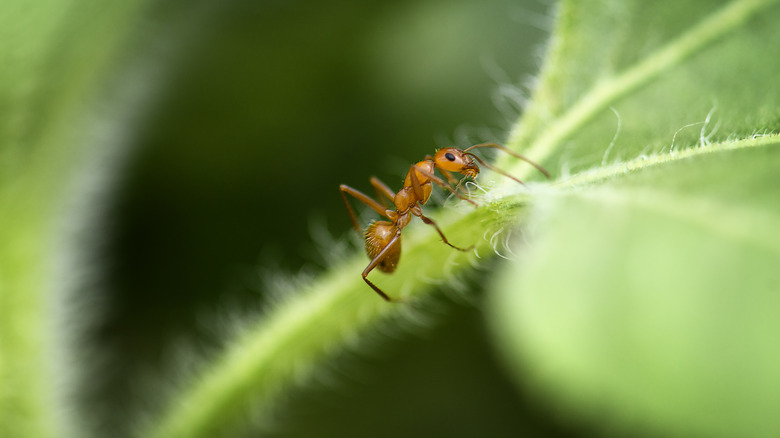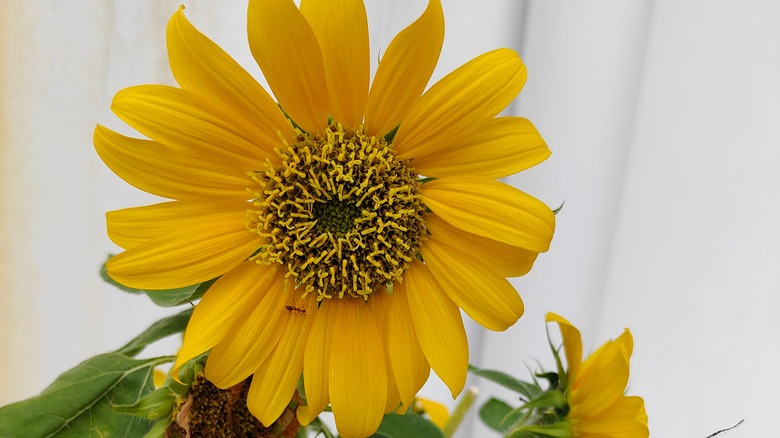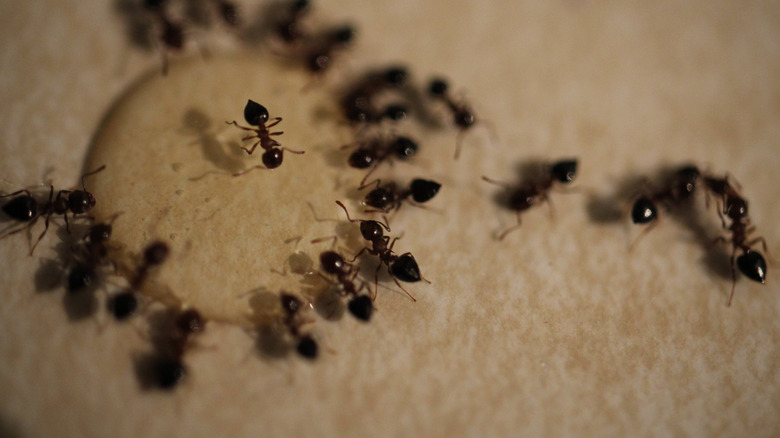This Stunning Yellow Flower Might Be Attracting Ants To Your Home & Garden
Sunflowers are an obvious favorite in plenty of gardens, thanks in no small part to their tall, cheerful blooms, plus their versatility and general hardiness. They are also prized for their seeds and oils, both of which benefit humans in different ways. However, there's a bit of a catch — sunflowers in your garden might be inviting a few uninvited guests, namely ants!
While ants may seem harmless as they scurry among your sunflowers, their presence alone can indicate potential pest control issues for your garden and home. Ants build large nests underground and cause soil disruption as they burrow. Moreover, an ant infestation can eventually creep into your home, with the insects making their way indoors in search of food, thus becoming a nuisance beyond your garden.
So, why do ants like sunflowers? Well, the problem is twofold — these beautiful blossoms produce a sugary nectar that ants simply adore. On top of that, this same nectar attracts aphids, another treat for ants. This double whammy makes sunflowers a veritable buffet for these tiny, annoying critters.
Why are ants attracted to sunflowers?
When it comes to ants on plants, these busy bugs are generally attracted to the nectar their flowers produce or honeydew from the presence of aphids — both things sunflowers tend to have. Many sunflower varieties have extrafloral nectaries, which are nectar-producing glands located on the stems or foliage rather than the flowers. These extrafloral nectaries are a significant draw for ants, akin to a bear finding a pot of honey. The nectar from these glands provides a sugary feast that ants can't resist, encouraging them to swarm and chew holes in the sunflower leaves. This can lead to damaged plants and a strong desire for better pest control strategies.
As for how aphids affect the whole ant situation — these tiny grubs love to attach themselves to the foliage of sap-producing plants, such as sunflowers, and while they can cause damage of their own, ants will often swarm in to farm the aphids. Ants and aphids have a mostly symbiotic relationship, leading them to wreak havoc on your garden and the sunflowers caught in the middle.
How do you get rid of ants on your sunflowers?
If you find ants taking over your sunflower patch and trying to spread elsewhere, stay calm. There are several pest control methods to reclaim your garden. One easy approach is to make your own homemade 4-ingredient ant killer by mixing 2 tablespoons of baking soda, 2 tablespoons of dish soap, 2 cups of apple cider vinegar, and water in a spray bottle and spraying it on your sunflower leaves to kill off ants.
If this doesn't work, try boric acid baits. This method of pest control involves getting the ants to carry boric acid back to their nest, eliminating the colony from within. Use ½ cup of jelly or peanut butter (some ant colonies are drawn to different types of sugars) with 1 ¼ teaspoons of boric acid powder. Punch a few holes in the lid of a jar, fill it with the bait, seal it up nice and tight, then place the jar on its side where ants will find it. The ants should go in, grab a bit of the bait-laced food, and take it back to their colonies, where other ants will eat it and die off.
Boric acid is low-toxicity, but it's still best to place bait jars where children and pets can't reach them. If you notice many dead ants around the bait, reduce the amount of boric acid. If you still see live ants after a week, increase the amount of boric acid.


